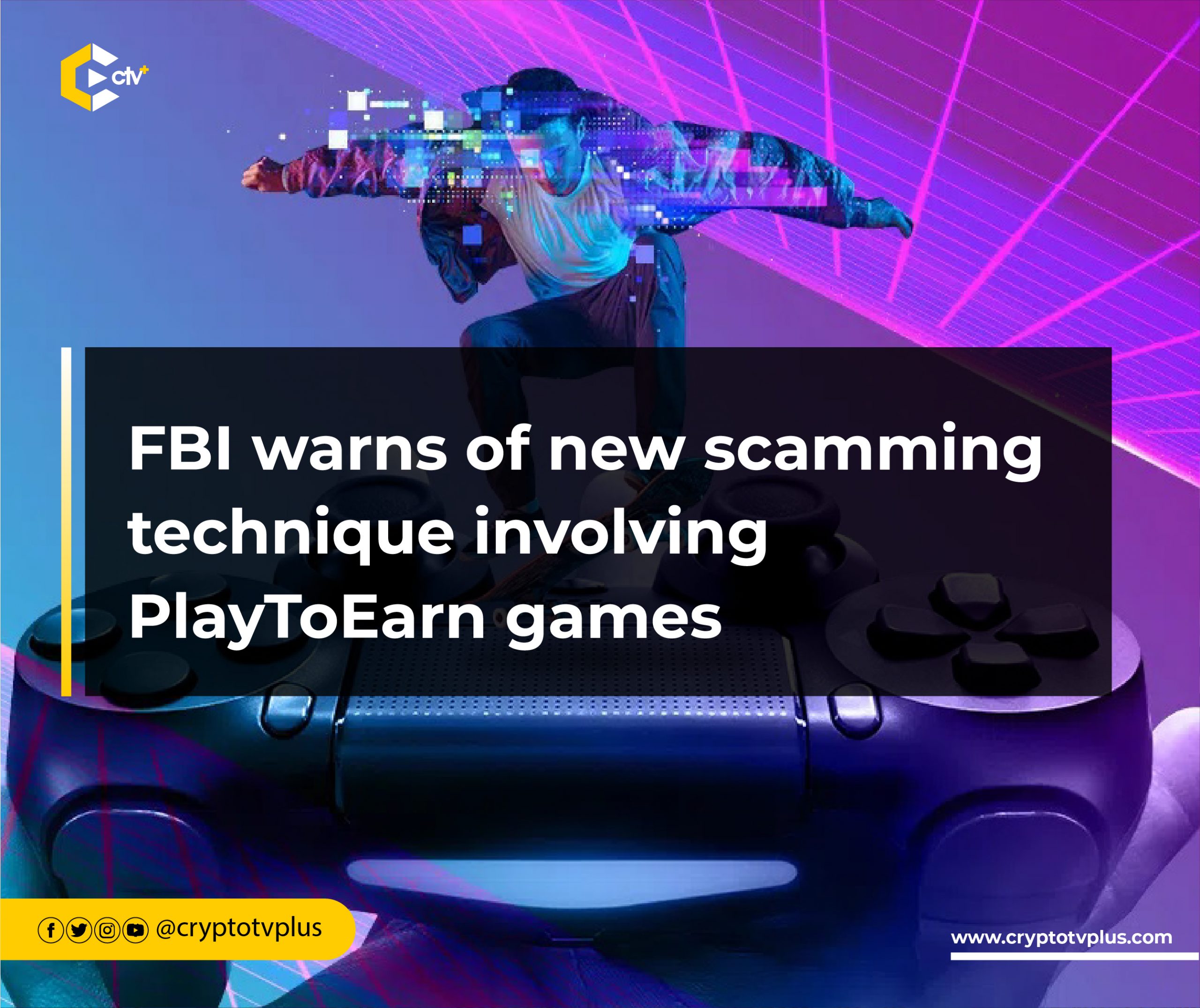News
FBI warns of new scamming technique involving PlayToEarn games

The FBI has issued a PSA cautioning people about the use of play-to-earn (P2E) games as a means of scamming them out of their crypto assets. The bureau has revealed that criminals are utilizing malicious software to pilfer funds from cryptocurrency wallets linked to this type of game after luring in unsuspecting victims.
On March 9, the Bureau released a PSA on the subject, explaining how fraudsters entice their victims to support play-to-earn games.
According to the Bureau, in order to earn the trust of their intended victims, fraudsters will build and gradually develop a rapport with them. Following this, the fraudsters will ask victims to download certain gaming software and create a cryptocurrency wallet in order to play the game where they can earn prizes for their actions and deposit money into cryptocurrency wallets as a staking mechanism.
Victims would supposedly gain higher rewards in the game if they kept more money in their wallets since the promised rewards are based on the total amount of cryptocurrencies in the wallet.
While playing the game, victims would notice rewards accumulating on the app, and when the players are ready to cash out on these rewards and attempt to withdraw, the fraudsters would empty their wallets using the unintentionally activated dangerous applications by the victims when entering the game. Criminals would then advise victims that they can recover money by paying additional taxes or fees, but even after doing so, the victims are still unable to get their money back.
How to avoid falling victim
The FBI also provided a number of tips on how to keep yourself safe from fraudsters utilizing this kind of scheme.
The first tip is to create a separate wallet that you can use if you want to take part in cryptocurrency games. As a result, if you unintentionally give unauthorized parties access to your gaming wallet, your main cryptocurrency wallet is safe.
Another tip is to use a third-party blockchain explorer to independently verify the balances in your game wallet.
Lastly, the FBI urged users to frequently verify which websites have unauthorized permission to their wallets by using a third-party token allowance checker to revoke those permissions if there are any.
Read also: Pig Butchering: the crypto scam FBI wants you to know

























Pingback: Liquidity Group to aid SBV-affected start-ups with $3B | CryptoTvplus: DeFi, NFT, Bitcoin, Ethereum Altcoin, Cryptocurrency & Blockchain News, Interviews, Research, Shows